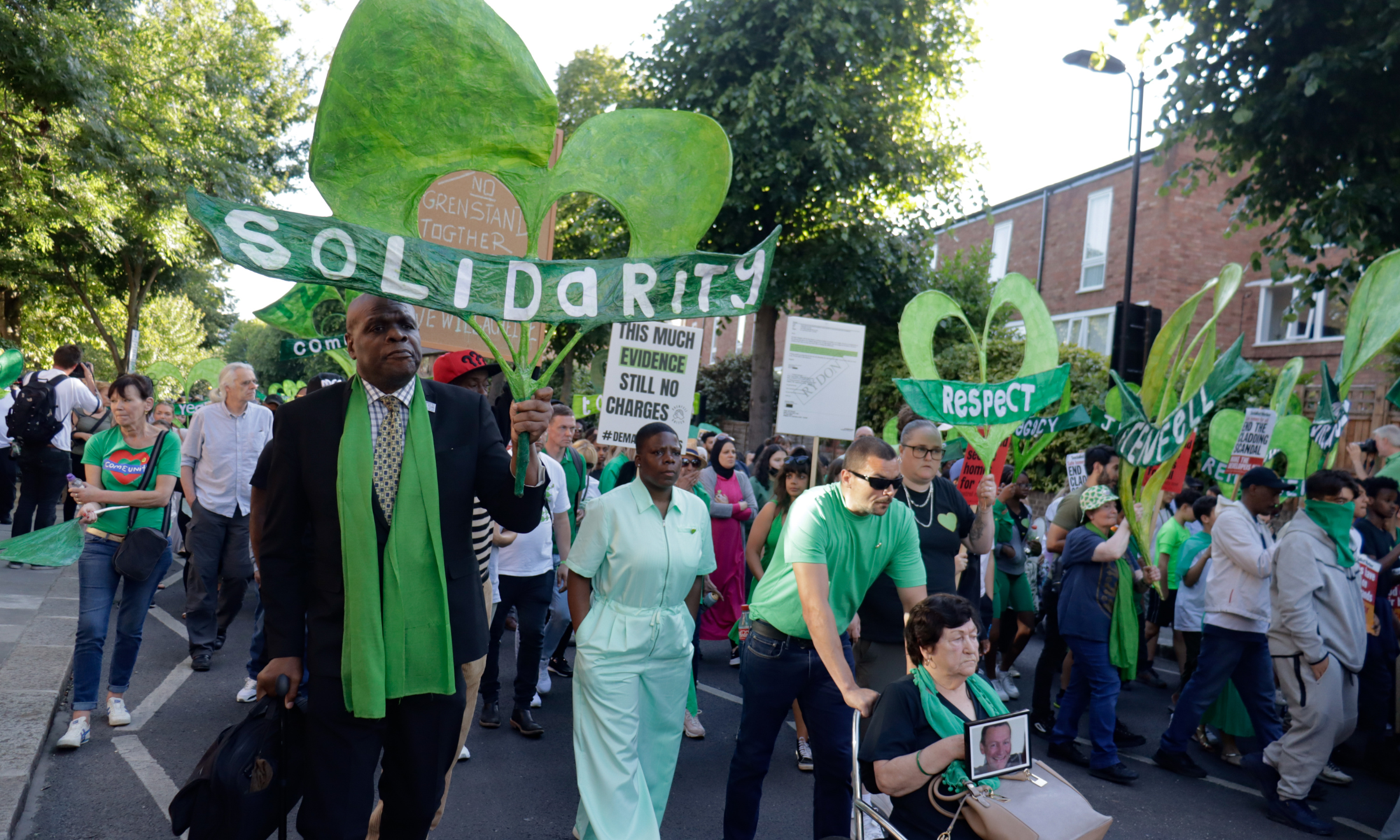‘Awaab’s Law’ won’t save Black and brown tenants from malignant social housing
Michael Gove’s new bill 'in tribute' to the death of two year old Awaab Ishak will do little to help marginalised communities.
Kinza Hussain
16 Mar 2023

Carcharoth via Wikimedia Commons
Content warning: mention of death.
Three years ago, residents of the Ilminster block on Rochdale’s Freehold estate mourned the loss of two year old Awaab Ishak, first son to Sudanese migrants Faisal Abdullah and Aisha Amin. A child’s passing is in any case, unimaginably tragic. The case of Awaab Ishak is not only no exception, but compounded by the fact that it was entirely preventable.
Awaab died from acute airway oedema following continuous exposure to toxic black mould in his family’s Rochdale flat, a result of the palpably defective moisture control throughout the property. Despite having reported ongoing issues with the ventilation system to Rochdale Boroughwide Housing in 2018, father Faisal Abdullah was dismissed, even when medical representation warned that Awaab’s health could deteriorate as a result. RBH, the social housing provider which describes itself as “the UK’s first tenant and employee co-owned mutual housing society”, did further damage with their claims that the excess moisture in the apartment was the product of ‘ritual bathing’, ‘using a bucket’ and other traditional practices they assumed that Ishak’s family observed regularly.
It’s not the first time racism has run rife in social housing – and it won’t be the last. ITV’s 2021 exposé revealed council housing departments’ poor handling of complaints regarding collapsing ceilings and dangerous disrepair, chalking them up to the cultural practices of the occupying tenants. An overwhelming majority of these tenants in the investigation were forced to go by white-passing names in order to dodge prejudice and have their complaints taken seriously. And on 5 March, another instance of council landlord negligence manifested in the Maddock House council block fire in Tower Hamlets, which killed 41 year old, father-of-two Mizanur Rahman. Despite persistent overcrowding complaints from residents since 2021, stressing that the estate had long since exceeded capacity, reports allege that the landlord body continued to sideline the issue.
“It’s not the first time racism has run rife in social housing – and it won’t be the last”
To say instances like this have brought the matter of hostile housing associations to the foreground is an understatement. This breadcrumbing of criticism has inspired a new age of social housing activism, as seen by Kwajo Tweneboa’s work drawing attention to the neglectful attitudes of housing associations. But these individual actions alone can’t tackle the dangers of an entire sector.
Last month, Michael Gove announced that the details of Awaab’s case, coupled with faulty governmental guidance that allowed events such as Grenfell tragedy to occur, warranted imminent “culture change”. This came in the form of a new amendment to the Social Housing Regulation Bill, namely ‘Awaab’s Law’.
This subset of the Bill, announced on 9 February, will hold landlords accountable for unsafe properties by requiring them to fix reported health hazards within agreed timeframes. It will proceed via secondary legislation this summer, when the consultation on timeframes for landlords to respond to hazard complaints is due to end. Gove’s department has also recently introduced other legislation such as the Responsible Actors Scheme, committing developers to repair serious safety defects within a six-week deadline or face blockage from receiving building control approval altogether.
“Awaab’s Law will help to ensure that homes across the country are safe, decent and warm,” were the closing remarks dealt by the Housing Secretary in his press release covering the Bill’s introduction. Whilst a greater overall standardised quality of social housing is obviously a positive breakthrough for the four million UK households occupied by social renters in 2023, it’s clear that minorities are not equal beneficiaries of this deal.
Years of squalor in social housing have pushed Black and other minority groups into the private rented sector, which, in some cases, can broaden their exposure to adverse circumstances. Privately rented homes, according to a survey conducted by Citizens Advice, are notoriously energy inefficient which in turn generates damp and mould comparable to that seen in the Rochdale estate. According to the charity, an estimated 1.6 million children are currently living in privately rented properties ridden with damp and mould. At present, ‘Awaab’s Law’ does not extend to the private rented sector, despite calls on the Government to do so, by bodies such as Citizens Advice.
“‘Awaab’s Law’ is inherently ineffective in the face of an endemic culture of tenant discrimination”
Even without extension of the Bill to other sectors of the housing market, ‘Awaab’s Law’ is inherently ineffective in the face of an endemic culture of tenant discrimination. The language used by RBH to discredit Ishak’s family’s valid concerns about the harmful condition of their property is indicative of a far deeper-seated issue than just landlords failing to replace an old ventilation unit. The xenophobic attitudes woven into the fabric of the social housing sector remain untouched by the confines of this legislation. There is great irony in framing the introduction of the Bill as a “tribute to Awaab’s family for their tireless fight for justice over the last two years”, when it does little to address said injustices that impeded their right to a decent standard of living.
Reflexivity and governmental policy must go hand in hand to set the precedent for institutions like social housing, which is integral to the wellbeing of communities, so that this cycle of fatal discrimination is brought to an end. Social housing associations must be held accountable for their biases. Only then can the rights of tenants truly be enshrined.
The contribution of our members is crucial. Their support enables us to be proudly independent, challenge the whitewashed media landscape and most importantly, platform the work of marginalised communities. To continue this mission, we need to grow gal-dem to 6,000 members – and we can only do this with your support.
As a member you will enjoy exclusive access to our gal-dem Discord channel and Culture Club, live chats with our editors, skill shares, discounts, events, newsletters and more! Support our community and become a member today from as little as £4.99 a month.

Accusations of exploitation mount against an ‘ethical’ housing enterprise

‘We were all robbed’: Grenfell’s community stands in solidarity on fifth anniversary

Remembering Grenfell: five years on and still no justice






